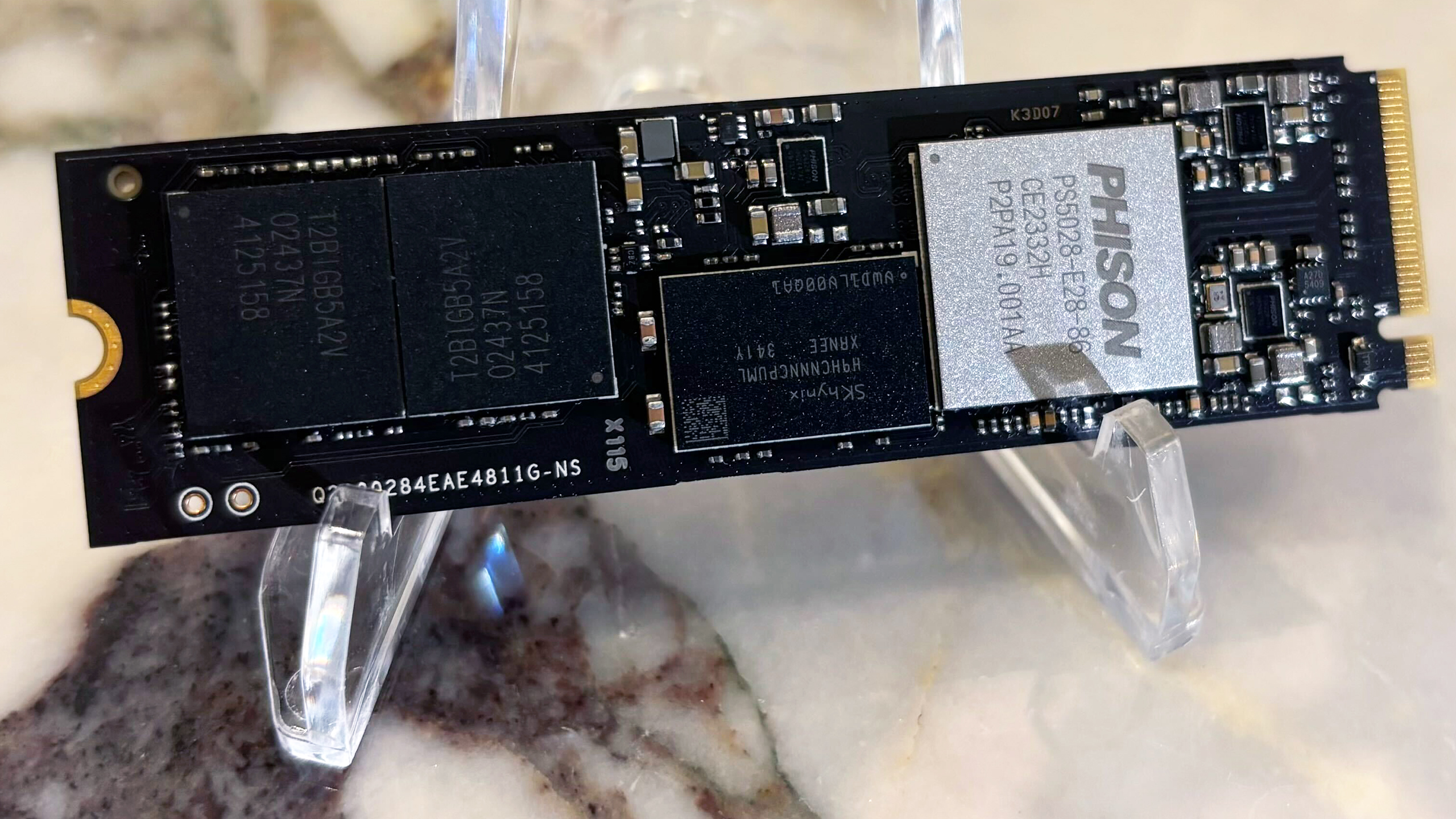New report blames Phison's pre-release firmware for SSD failures — not Microsoft’s August patch for Windows
Latest findings suggest consumer SSDs with official firmware are unaffected.

The curious case of failing SSDs, following Microsoft’s August security patch for Windows, has once again taken an unexpected turn. According to the Chinese Facebook group PCDIY!, the root cause of the issue stems from pre-release engineering firmware on certain SSDs, which may have been triggered by the Windows 11 updates.
In a Facebook post, group admin Rose Lee said that the issue has been identified and additionally verified by Phison engineers, thereby giving credibility to the claims. Lee explains that testing done by PCDIY! revealed the SSD crashes tied to the Windows 11 update were occurring on drives running pre-release engineering firmware, not the final production version.
Since SSD manufacturers using Phison controllers source them directly from the original supplier and ship them in bulk with mass-production tools, the versions that reach consumers should already run the official firmware. This official firmware has been fully tested and verified, and does not show the anomalies sometimes found in engineering builds.
Last month, it was reported that Microsoft’s August Windows 11 update was causing peculiar SSD failures. Users claimed that their drives were disappearing after heavy file transfers, with some systems unable to recover even after a reboot. In response, Phison issued a statement after conducting over 4,500 hours of testing, claiming it was unable to reproduce the reported failures. The company suggested that thermal issues could be a contributing factor and even recommended that users employ heatsinks to avoid overheating during heavy workloads.
Microsoft later weighed in, firmly denying that its August update was responsible for the storage problems. The company said its investigation showed no connection between the security patch and SSD failures, dismissing the theory that the update had introduced a critical flaw.
With the latest finding by PCDIY! pointing towards pre-release engineering firmware as the likely cause, the story appears to have shifted once again. Essentially, end-users running SSDs with official production firmware should not experience any issues with their storage devices.
Having said that, the back-and-forth between user reports, lab testing by Phison, and Microsoft’s denials highlights how complicated it can be to pinpoint the source of storage failures, particularly when firmware, hardware, and operating system updates overlap.
Get Tom's Hardware's best news and in-depth reviews, straight to your inbox.
We highly recommend that users update their SSD firmware if they encounter similar issues. Make sure to back up all important data beforehand, as a precaution.
Follow Tom's Hardware on Google News, or add us as a preferred source, to get our up-to-date news, analysis, and reviews in your feeds. Make sure to click the Follow button!

Kunal Khullar is a contributing writer at Tom’s Hardware. He is a long time technology journalist and reviewer specializing in PC components and peripherals, and welcomes any and every question around building a PC.
-
Alvar "Miles" Udell Wait, so Microsoft and Phision were telling the truth, as well as the many people who were also unable to reproduce the issue with their own drives, myself included? Who knew it'd be essentially a manufacturing defect...Reply -
CrazyCarrot911 ...and my 4 PC's in the office running Samsung 990Pro 1TB must then have a Phison controller, as they tend to Crash-2-Bios with NVMe disppearing......Reply
irony aside, that is nonsense, it spans across all vendors meanwhile, they all have their piece of that cake, apparently. Phison may suffer the most but they are not alone. -
LabRat 891 This reeks of coverup... This 'admission' mitigates liability to non-consumer pre-release products only.Reply
Especially after Phison started out admitting there might be an issue,
then HARD 180s and denies it,
and now are saying it's only pre-release units affected.
That's 'legal team' involvement, IMO.
TBQH, I wouldn't at all be surprised to find out this is an even-further reaching issue, well-beyond *just* Phison. -and, that Phison is panicking, merely because they're the first implicated. -
Groveling_Wyrm JayzTwoCents has put out a video of how ssd's are failing him and shows a demonstration. You can find that HERE. He also lists other SSD's that are vulnerable.Reply -
adamXpeter Reply
Check this article, and your drives: https://www.tomshardware.com/news/fake-samsung-ssds-found-at-etailer-then-benchmarkedCrazyCarrot911 said:...and my 4 PC's in the office running Samsung 990Pro 1TB must then have a Phison controller, as they tend to Crash-2-Bios with NVMe disppearing......
irony aside, that is nonsense, it spans across all vendors meanwhile, they all have their piece of that cake, apparently. Phison may suffer the most but they are not alone. -
grilledfingers Then why did it impact my Kingston SNV2S1000G drive? It locks it up with constant 100% utilization while infrequently writing/reading data.Reply -
adamXpeter Reply
I don't buy two kinds of SSD for leaving me/partners early: Kingston and ADATA*. For example, I haven't left by a Kioxia or Samsung SSD yet.grilledfingers said:Then why did it impact my Kingston SNV2S1000G drive? It locks it up with constant 100% utilization while infrequently writing/reading data.
If it locks up then either it is full and you ran out of SLC cache, or it is giving subtle signs to leave ship while you can copy your data off to another one.
*One ADATA left the chat without a warning, another one arrived DoA and ADATA did not want to replace it, the reseller gave back my money on their own, instantly spent on another brand.